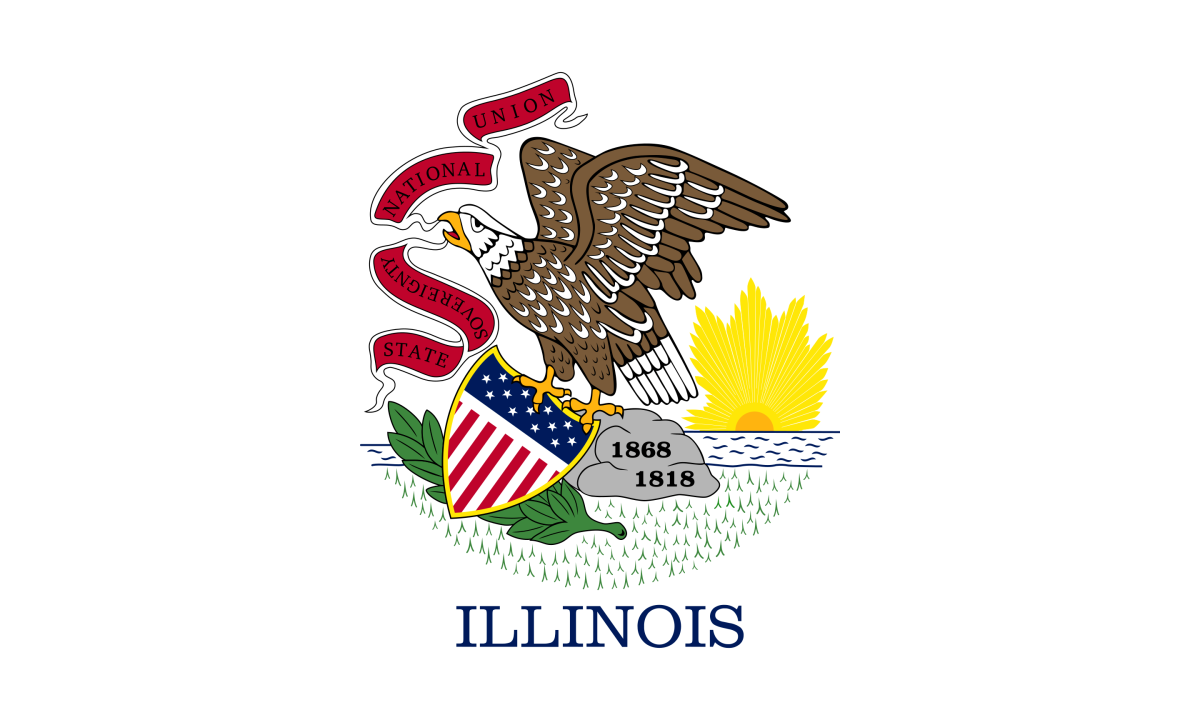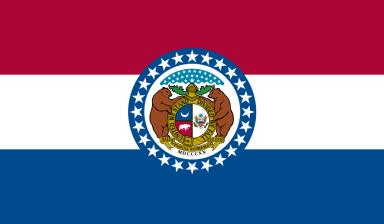Illinois Employment and Labor Laws

In February 2023, a healthcare company in Illinois was ordered by a court to pay employees over $1 million in unpaid wages and damages after they were found violating the Fair Labor Standards Act. In 2022, a restaurant that misclassified employees as independent contractors had to pay over $100,000 to those workers. If you are underpaid, forced to work long hours without breaks, or discriminated against at work, you could also have grounds for a wage claim or discrimination lawsuit.
This page will inform you about some of the laws protecting Illinois workers, the penalties employers can face for violating those laws, and the grounds for a viable Illinois employment lawsuit. You can also find some resources for workers who are being mistreated or who have faced unlawful termination.
Illinois Minimum Wage Laws
As of 2023, the minimum wage in Illinois for non-tipped workers is $13 an hour. This marks a one-dollar increase from the previous minimum wage. The new minimum wage for tipped workers is $7.80 an hour. However, Illinois mandates that if an employee’s combined tips and wage do not amount to $13 an hour or more, their employer compensates them for the difference. Some cities institute higher minimum wages than the state-mandated minimum. For example, Chicago’s minimum wage is $14.50.
There are some exceptions to Illinois’s minimum wage. Minors who work less than 650 hours per year can earn $10.50 an hour. Tipped employees can be paid an equivalent of $12.50 per hour between wages and tips for their first 90 days of training. The minimum wage does not apply to immediate members of an employer’s family.
Source: https://www.illinois.gov/news/press-release.25846.html
Illinois Vacation Requirements
As of 2023, Illinois does not mandate that employers provide employees with any amount of paid leave. However, the Paid Leave For All Workers Act will go into effect at the beginning of 2024. This bill requires employers to grant employees 40 hours of paid leave per year, equal to one week of eight-hour workdays.
Employers will have the option of requiring seven days’ notice before an employee uses their leave, but they cannot deny an employee their leave for any reason. Additionally, an employee will still be able to take their leave on shorter notice than seven days due to unforeseeable circumstances. Unused vacation time will carry over, but employers will not have to grant any employee more than 40 hours of leave in a single year.
Employers found violating the PLAWA will be charged a fine of $500-$1,000 in addition to any damages owed to employees.
Illinois Overtime Law
Any Illinois employee who works more than 40 hours in one workweek is entitled to overtime pay, which the state sets at 150% of that employee’s regular wage. As of 2023, employees must be paid at least $19.50 per hour for overtime work.
There are several exceptions for overtime pay. Agricultural workers are exempt from overtime pay, as well as employees defined as executive, administrative, or professional by the Federal Labor Standards Act. According to the FLSA, employees who earn at least $684 per week at jobs requiring intellectual labor and specialized education, such as a college degree, fall into the latter category.
If the Department of Labor discovers that an employer is underpaying workers, which denying them overtime pay would constitute, the employer will be forced to compensate those workers for the full amount of the underpayment plus additional damages. They will also be fined $250, $500, or $1,000, depending on the amount of underpayment, and could be subject to further penalties for non-compliance.
Illinois Employee Misclassification Law
It is illegal for an employer to misclassify employees as independent contractors. Some employers claim that their workers are contractors in an attempt to avoid providing unemployment benefits, workers’ compensation, and other benefits owed to employees.
A worker can only be classified as an independent contractor if they perform their job with no instruction from the person hiring them, if they established their own business and if the service they provide is “outside the usual course of business” for the hiring company. Someone who has to answer to supervisors at work or who regularly works out of a company office is more likely to be an employee than an independent contractor.
A company caught classifying its employees as contractors will have to reimburse those employees for the insurance benefits that they missed out on and will face additional financial penalties. Employees can report misclassification through the Illinois Department of Labor’s website.
Source: https://ides.illinois.gov/employer-resources/taxes-reporting/employee-misclassification.html
Illinois Break Requirements
Workers in Illinois are entitled to at least one 24-hour break every week. Employees are also entitled to one meal break during a seven-and-a-half-hour workday. The break should last at least 20 minutes and should begin five hours after the start of the workday or earlier. If an employee is working a 12-hour day, they are entitled to two meal breaks.
There are some exceptions to the minimum break requirements. Employers can obtain permission to have an employee work during their day off if the employee is willing to do so. That employee will also earn overtime pay. If employees work under a collective bargaining agreement, then the agreement’s rules about breaks will supersede the state’s.
Employers caught denying workers the minimum amount of required breaks will be fined per violation, half of which will go to the worker and half to the Illinois Department of Labor. This fine is $500 for businesses with 24 employees or fewer and $1,000 for businesses with 25 employees or more.
Illinois Pay Deduction Laws
Illinois businesses cannot deduct from workers’ paychecks without written consent from the worker for any cost other than taxes, benefits, or union dues. This excludes deductions for missing inventory, property damage, and company-owned equipment such as uniforms. An employee has to provide written consent at the time of the deduction for it to be valid. An employer cannot legally force a worker to pre-emptively agree to potential future deductions as part of their employment contract.
A business owner who catches an employee stealing from their place of work can fire and press charges against that employee. However, unless they obtain written consent, they cannot deduct that employee’s pay to account for the value of the stolen items.
Employers who unlawfully deduct their workers’ pay are subject to legal penalties for underpayment.
What Are the Penalties for Unlawful Termination in Illinois?
Illinois is an at-will employment state, meaning employers can terminate employees without notice or reason. However, there are still some circumstances that constitute unlawful termination.
Illinois’s Human Rights Act protects employees from being discriminated against based on their belonging to a protected group. The state defines these groups as “race, color, religion, sex…, national origin, ancestry, age (40 and over), order of protection status, marital status, sexual orientation (including gender-related identity), physical or mental disability, conviction record, and military status or unfavorable discharge from military service.” Firing someone for belonging to a protected group would constitute discrimination.
For example, an employee who is fired after coming out or transitioning has reason to believe that the firing may have been based on their sexual orientation or gender identity, which would be a violation of the IHRA. This employee can file a charge with the Illinois Department of Human Rights and has the option of pursuing a civil lawsuit against their old employer.
It is also illegal to fire an employee in retaliation for exercising their labor rights, including collecting workers’ compensation, making use of legally permitted break periods, or pursuing legal action over violations of labor law.
Someone who was wrongfully terminated can file a civil lawsuit against their former employer. However, because of Illinois’s at-will statute, that employee must prove that their firing was retaliatory or discriminatory. If an employment lawsuit is successful, the plaintiff can collect damages for lost wages and other economic or non-economic consequences of their lack of income. If a jury finds the former employer guilty of human rights violations, they may have to pay additional punitive damages and compensate the claimant for emotional distress.
Source: https://dhr.illinois.gov/filing-a-charge/faq-section-ii.html
How Much Can Someone Sue an Employer For in Illinois?
Illinois does not limit the amount of damages that someone can receive as compensation for a former employer’s labor offenses. If your complaint is valid, or if your lawsuit succeeds, you should be able to recover the full amount of wages that you missed out on due to your old employer’s violations.
However, someone who files a complaint through the Department of Labor will only receive compensation for lost wages. A plaintiff in an underpayment, misclassification, or discrimination lawsuit also stands to receive compensation for legal fees, non-economic damages, and the economic costs of unemployment beyond lost wages. As noted above, someone suing a former employee for violations of the Human Rights Act can receive compensation for emotional distress and economic damages.
The Statute of Limitations in Illinois
Illinois has separate statutes of limitations for different labor violations. Someone who was underpaid or had wages illegally withheld by a former employer has one year from the date the payments were due to file a complaint with the Department of Labor. A subcontractor in the construction industry has three years to file a complaint against their primary contractor. Someone who intends to sue a former employer for misclassification has three years from their last day of work for that employer. Someone who intends to report an employer for discrimination that violates the Illinois Human Rights Act should submit a complaint within 300 days of the offense.
Resources for Employees in Illinois
If you are experiencing financial difficulties after wrongful termination or think your employer may be violating labor laws, the following resources may help. These websites will provide information on workers’ rights in Illinois, show you how to file a workers’ compensation claim, and allow you to apply for unemployment benefits and economic assistance.
Unemployment Benefits
If you have recently lost your job, your first step should be filing for unemployment benefits. Illinois residents can collect up to 26 weeks’ worth of unemployment over the course of one year. You can also collect unemployment if you have recently moved from full-time to part-time work for reasons beyond your control.
Illinois allows you to file for unemployment online through the Department of Employment Security. Before doing so, the state requires that you register with IllinoisJobLink, a service that helps users apply for jobs.
Recently unemployed people who have questions about unemployment benefits can consult the Unemployment Insurance Benefits Handbook.
Visit: https://ides.illinois.gov/unemployment/resources/benefits-rights.html
Illinois Department of Labor
If you are experiencing what you believe to be unfair, unethical, or illegal treatment at work, the Illinois Department of Labor’s website can help you learn more about your rights as a worker. They offer FAQs about state labor laws and up-to-date information on new legislation that might affect workers. You can also file wage claims and other labor-related complaints online.
Visit: https://labor.illinois.gov/
Illinois Workers’ Compensation Commission
If you have been injured at work, you have the option of filing a workers’ compensation claim. A successful workers’ comp claim can provide you with some much-needed financial relief if you are temporarily unable to work due to your injuries.
The IWCC is the state department handling workers’ comp claims. Their website provides several valuable resources for someone interested in filing a claim, including a workers’ comp handbook and a database to help you find your employer’s insurer.
Visit: https://iwcc.illinois.gov/
Supplemental Nutrition Assistance Program
If you have experienced serious economic stress as a result of wrongful termination, reduced wages, or unfair treatment at work, you might benefit from the Supplemental Nutrition Assistance Program. SNAP provides people who are economically struggling with a monthly stipend for food. These benefits cannot be used to buy hot meals, alcohol, or tobacco. Subscribers also have access to services that provide job training, job placement, and assistance with child care; however, participation in these services is voluntary. You can apply for SNAP benefits online.
To learn more about eligibility and what the program offers, consult the Illinois Department of Human Services SNAP webpage.
Expertise.com StaffAuthor
Step into the world of Expertise.com, your go-to hub for credible insights. We don't take accuracy lightly around here. Our squad of expert reviewers, each a maestro in their field, has given the green light to every single article you'll find. From rigorous fact-checking to meticulous evaluations of service providers, we've got it all covered. So feel free to dive in and explore. The information you'll uncover has been stamped with the seal of approval by our top-notch experts.




